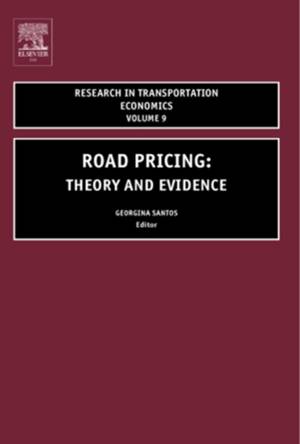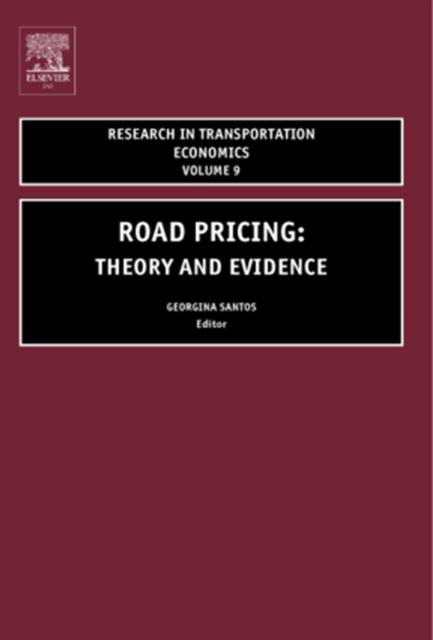
- Afhalen na 1 uur in een winkel met voorraad
- Gratis thuislevering in België vanaf € 30
- Ruim aanbod met 7 miljoen producten
- Afhalen na 1 uur in een winkel met voorraad
- Gratis thuislevering in België vanaf € 30
- Ruim aanbod met 7 miljoen producten
Zoeken
Road Pricing
Theory and Evidence Volume 9
€ 230,95
+ 461 punten
Omschrijving
Traffic congestion affects towns and cities everywhere and in some places it is regarded as one of the most urgent and important problems in need of a solution. Road pricing is undoubtedly recognised as an effective traffic demand management tool. The recent London congestion charging scheme seems to be showing that public and political opposition is not insurmountable. Thus, the ghost that prevented the introduction of a policy supported by transport economists for over 80 years seems to have disappeared or at least, weakened.The book contains twelve papers useful to different types of audience, such as researchers and postgraduate students, civil servants, policy makers and consultants. The first part is mainly theoretical and concentrates on second-best congestion pricing including pricing in urban contexts, the impact on the performance of the road network, optimal locations and charge levels, dynamic aspects such as time variation of tolls, potential impacts of road pricing on costs and service quality of public transport buses, and efficiency costs and transport sector effects of different types of pricing when they guarantee a balanced budget per mode.The second part contains chapters that describe the schemes in place around the world such as Singapore, Norway, London, and the US. The volume is an update of the state of the art on the subject and the first one to have been written and appear after the London scheme was implemented and to contain an assessment of its preliminary impacts.
Specificaties
Betrokkenen
- Uitgeverij:
Inhoud
- Aantal bladzijden:
- 324
- Taal:
- Engels
- Reeks:
- Reeksnummer:
- nr. 9
Eigenschappen
- Productcode (EAN):
- 9780762309689
- Verschijningsdatum:
- 1/11/2004
- Uitvoering:
- Hardcover
- Formaat:
- Genaaid
- Afmetingen:
- 164 mm x 233 mm
- Gewicht:
- 594 g

Alleen bij Standaard Boekhandel
+ 461 punten op je klantenkaart van Standaard Boekhandel
Beoordelingen
We publiceren alleen reviews die voldoen aan de voorwaarden voor reviews. Bekijk onze voorwaarden voor reviews.










